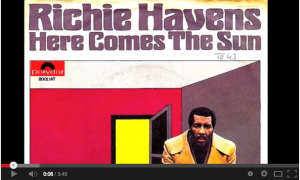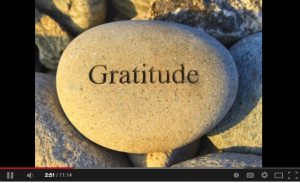This week was an especially stressful time of the semester. Some of you are looking forward to spring break, but Vanderbilt’s was at the very beginning of March. The week after break–or, as we often call it, “break”–is hard for instructors and students alike. We see the home stretch in front of us, but it’s a track full of due dates, major assignments, projects, meetings, events, and more. Combine full schedules with the explosion of spring outside our office windows, and even the most dedicated fantasize about playing hooky.
During one such fantasy, I came across Amy Johnson’s “Falling in Love with Any Work You Do,” in which she recalls truly loving her college summer jobs in a way that stopped when she began working “‘real'” jobs:
“I spent an inordinate amount of time thinking about what I was doing and how I was doing it — was I working to my potential? How did my job stack up to others? Was I getting enough opportunities, challenge, pay, accolades Should I settle in or continue to look for something better? Was I doing well? What did my colleagues think of me? Did three business trips this month mean I’d have to travel a lot in the future, or was this month a fluke? What did it all mean? It’s clear to me now that all of that thinking is what changed it for me.”
The onset of worrying and ruminating–what she generically calls “thinking”–increased her stress, blocked her connections with colleagues, and distracted her from the work itself. Before the stakes were high and she started fretting about her job, she “was in the moment, living in the continual unfolding of life.” This kind of inductive living, if you will, is mindful living: “We get to experience life as it unfolds in front of us rather than simply experiencing our thinking about life. We get to discover life rather than confirm our theories about it.” Johnson concludes that she “can be happy anywhere. Like seriously, deeply content in any circumstance.”
I realize this assertion walks (and perhaps even crosses) the fine line between “be happy with what’s in front of you” and “stop complaining and accept injustice”–a line that also leads to confusion about the Buddhist tenet that “life is suffering.” I continually work to wrap my mind around these easily-conflated ideas because while I believe in contentedness, acceptance, and mindfulness, I also feel to my core that each of us has an obligation to act for social justice.
For me, it’s about the stories we tell–as I wrote in “Stories of the Slow Professor.” I was (and continue to be) inspired by the work of Maggie Berg and Barbara K. Seeber in “The Slow Professor: Challenging the Culture of Speed in the Academy,” which implicitly negotiates this distinction in its discussion of faculty work-stress. Berg and Seeber argue that we should change our perspective about our work to reflect both the “‘Politics and Pleasure'” of the Slow Food Movement (6). Rather than simply slowing down and withdrawing from the “corporatisation” of the university that exacerbates the stress and speed, they identify “individual practice as a site of resistance” (4-5).* So starting today, I’m going to resist by reconnecting with my “otter narrative,” or framing my thinking with a sense of play, allowing myself to soak up the sun while floating on my back, and working as necessary. I love my job–more than any previous one–but it still and always will require a “continual unfolding of the work” of circling back around to these lessons of mindfulness.
Practice
Deeper than any stress and despite any complaints, I am grateful for my job, my colleagues, my students, my home, my friends, and my (relative) health. I like this meditation on gratitude because it begins with the sun, which for many of us was starting to feel like an old friend who’s been away for too long.
I’m also going to listen–really listen–to one of my favorites, the late Richie Havens, welcoming the sun. For an extra boost, here’s George  Harrison’s original.
Harrison’s original.
—
* How? Read their article (it’s only six pages), or my final paragraph in “Stories of the Slow Professor.”





